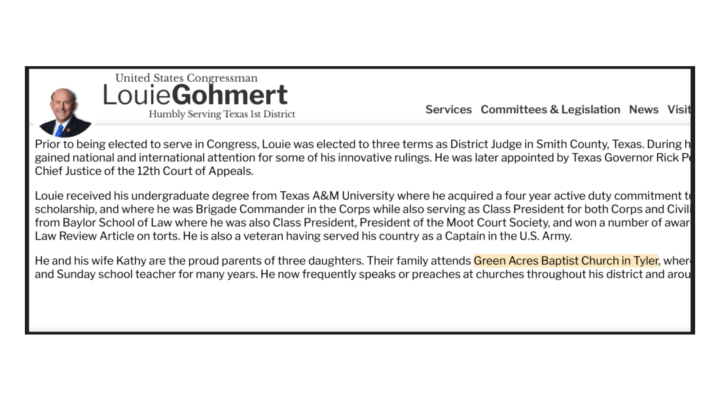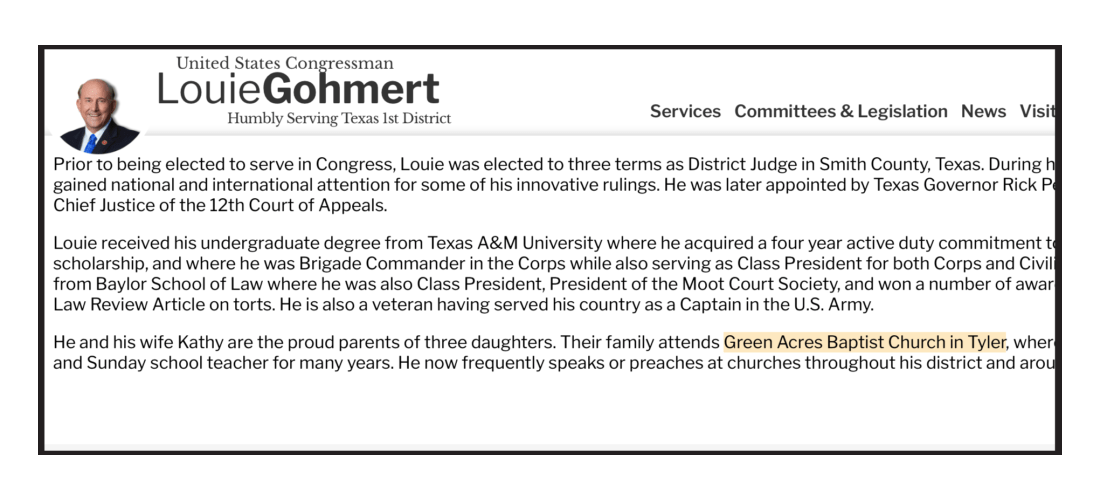In the wake of the recent attack on the United States Capitol by insurrectionists, American members of the clergy should take time to reflect on their responsibility not only as religious leaders but as civic leaders. Ministers might not, and arguably should not, engage in partisan politics, but they always wield political power — like it or not.
A recent Atlantic article, “A Christian Insurrection,” cited reactions to the Jan. 6 events from prominent evangelical leaders like Al Mohler of Southern Baptist Theological Seminary and Rick Warren of Saddleback Church. Many reflections on evangelicalism’s relationship to the current Republican Party and Donald Trump think in the abstract about this group’s evolution.
Such abstractions do not shed light on how to lead a congregation when a member of the diaconate, for instance, incited violence or stormed the U.S. Capitol. Should a pastor police the congregation’s membership? If so, under what circumstances?
To understand this question better, journey back to the nation’s founding.
The myth of democratization
From the United States’ earliest beginnings, religion helped shape the country’s budding democratic republic, but at the same time American religious life also was shaped by this new political experiment. Some scholars discuss this relationship through the idea of “democratization.” The term, coined by historian and Wake Forest University President Nathan Hatch, suggests that during the early 19th century American evangelicals came to embrace democratic ideas.
The past recent months of demonstrably false claims of voter fraud, election tampering and ballot tampering from many individuals within the evangelical community, however, raise the question of whether or not these modern-day evangelicals ever embraced democratic ideals or merely tolerated them. Banners of “Jesus 2020” and other evangelical language and symbols that permeated the Capitol protest and insurrection in response to a legitimate election suggest democracy may not be wholeheartedly embraced.
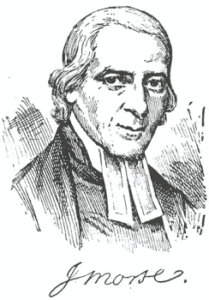
Jedidiah Morse
While the early 19th century witnessed the expanse of religious traditions, many popular avenues of participation in religious life could appear in one light “democratic,” yet evangelical leaders were particularly fearful of a democratic form of governance. Jedidiah Morse, one of the evangelical founders of Andover Theological Seminary — the first, prototypical institution of theological higher learning — worried that a democratic form of governance failed to account for human sinfulness and depravity.
Writing in an 1805 letter, Morse declared, “I consider Unitarianism as the democracy of Christianity. It dissolves all the bonds of Christian union and deprives religion of all its efficacy and influence upon society.” For Morse, democracy was a problematic form of governance precisely because it put power into the hands of sinful people. How could “we the people” seek to form a “more perfect union” when we are anything but perfect?
Helping democracy flourish
Recognizing that the die already had been cast regarding the American democratic experiment, Morse sought to establish systems and institutions that could aid this flawed governmental system. Educated ministers became one of the chief avenues through which evangelical leaders sought to shape and influence the country. Seminaries like Andover would educate ministers, who in turn would educate and guide their congregants toward proper and upstanding civic engagement.
“Educated ministers became one of the chief avenues through which evangelical leaders sought to shape and influence the country.”
For Morse, this was a delicate balance. Ministers should not be too overbearing upon the citizens of a particular region, as that might insight dissenters. Virginia being a chief example. The established church had too rigidly exerted their authority, according to Morse, which led to the rise of dissenting sects like Baptists and Presbyterians.
At the same time, ministers could not be too relaxed in the guidance of their congregants. In so doing, they would allow vice and sinfulness to flourish. Connecticut, he argued, possessed an educated ministerial class that exerted the proper balance between these two extremes. The composition of this state served as the “best in the world … for a republican government,” he touted.
Seminaries to the rescue
Seminaries therefore became vessels not only for training religious leaders, but for training political leaders who would regulate American democracy. Ministers functioned to guide and lead the American electorate to proper decisions because without religious guidance, the electorate would descend into sinful chaos. Democracy was not a good form of governance, but it could be aided by an educated ministerial class.
There was a fear among evangelical leaders that without moral and religious guidance, citizens might be swayed toward acting against the nation’s better interests.
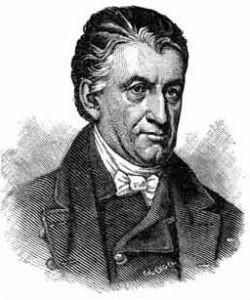
Lyman Beecher
In Lyman Beecher’s famous Plea for the West, he wrote, “Half a million of unprincipled, reckless voters, in the hands of demagogues, may, in our balanced elections, overrule all the property, and wisdom, and moral principle of the nation.” He wrote this while on a fundraising campaign for the recently founded Lane Theological Seminary. He and others believed education — and specifically ministerial theological education — functioned to keep American democracy on track.
For Morse and Beecher, theological seminaries and their products, ministerial professionals, were necessary to ensure the success of American democracy. As evangelical leaders, they did not think democracy was good in and of itself. Instead, American democracy needed to be regulated, and its citizens needed guidance.
The educational training many pastors and ministers receive today in American seminaries has institutional roots in Morse and Beecher’s fears of democracy. While our perceptions of democratic forms of governance are now informed by more than 200 years of experience, that does not change the realities that ministerial training in this country was intended to shape not only religious leaders but civic leaders.
Policing congregants
During an era when threats to American democracy seek to upend the lives of American citizens, ministers have a responsibility to intervene. Yet in a politically charged environment, this becomes increasingly difficult. How do you guide congregants toward the good when partisanship is so deeply entrenched?
Recently, I have thought a lot about Texas Congressman Louie Gohmert’s statement eight years ago in which he blamed a mass shooting in a movie theater in Aurora, Colo., on the “ongoing attacks on Judeo-Christian values.” At the time, I had been writing with some regularity for the Virginia Religious Herald online blog. I wrote a piece challenging Gohmert’s rhetoric as unfitting for both a Christian and his office.

Louie Gohmert and David Dykes
In the course of writing the piece, I discovered that Gohmert publicly states on his congressional website (and still does to this day) that he is a longtime member, deacon and Sunday school teacher at Green Acres Baptist Church in Tyler, Texas. As a soon-to-be divinity student, I was a bit full of myself and decided to tattle on Gohmert. I sent a cordial email to his pastor, David Dykes, expressing my sadness over Gohmert’s statements and a link to my blog post.
To my surprise, Dykes responded. He thanked me for my email and expressed his gratitude that we both live in a country where we can express our differences of opinion. Rather than defend Gohmert’s comments, Dykes defended Gohmert as a “brother in Christ” whom he had known “for the past 22 years.” He wrote, “I feel like the French guide at the Louvre who heard an American tourist criticizing some of the classic art. He said, ‘The paintings here are no longer under scrutiny; only the critics.’”
The pastor did pass along “for what it’s worth” an “apology” from Gohmert, where he said his comments had been taken out of context. He told me my article was well-written and encouraged me to keep writing.
Gohmert suggests violence
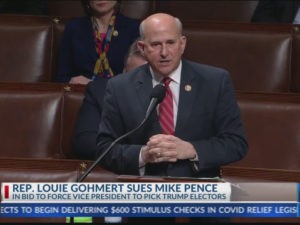
Screencap from KXAN-TV in Austin, Texas
I have thought a lot about that exchange over the past week and half. In late December, Gohmert filed a lawsuit against Mike Pence in hopes of overturning the lawful presidential election, but the lawsuit was thrown out by a Texas judge. Gohmert responded, explaining that he had filed the case to prohibit violence. He went further, stating that the dismissal of the case meant if you want something to be done about the election “you’ve got to go to the streets and be as violent as antifa and BLM.” Gohmert did not explicitly call for violence but implied that this was the only avenue Trump supporters had left to overturn the election.
In light of the seditious attack on the U.S. Capitol building on Jan. 6, Gohmert’s insinuation of violence appears damning. He later tweeted that he does not “advocate for violence,” but the damage of his words implying that violence was a possible option already had been done.
Ministerial recourse
Gohmert’s statements and the events of Jan. 6 are not likely to result in any spiritual recourse for Gohmert at Green Acres Baptist Church, but I wonder how things would be different if that were a possibility. Pastors certainly have a lot to deal with on a daily basis. Policing their congregants is likely not something they wish to add to their already busy lives — and where would one draw the line anyway?
“By not making a statement, Green Acres Baptist Church essentially condoned Gohmert’s rhetoric as perfectly acceptable behavior for a member of their congregation.”
Abstract and subtle or even not-so-subtle hints buried in the Sunday sermon likely do little aside from encourage pastors to assume they have done their due diligence. Silence from the pulpit, however, also breeds complicity. For instance, by not making a statement, Green Acres Baptist Church essentially condoned Gohmert’s rhetoric as perfectly acceptable behavior for a member of their congregation.
The possibility of losing members is another glaring obstacle. As congregations continue to face membership decline, publicly and even privately calling members out for their behavior could threaten the budget. In so doing, this could threaten ministries and even a pastor’s job, depending upon congregational politics.
Reinstituting the ‘Ban’
While early seminaries placed much of the burden of leading congregations on the shoulders of ministers, the congregation as a whole had a responsibility to protect the well-being of the community. In the 19th century, Baptists had mechanisms for dealing with congregants who engaged in immoral behavior. Emerging from Anabaptist congregational practice, Baptist churches regularly “banned” and even “excommunicated” members for drunkenness or infidelity. After a period of time, the individual could apologize to the congregation and seek to be reinstated.
Perhaps some modified form of this practice is necessary for our time. Stripping individuals of leadership roles or congregational voting privileges might give congregants the encouragement they need to reflect upon their rhetoric and actions. Gohmert’s rhetoric has done little to reflect the teaching of Jesus and much to insight fear, anxiety and violence.
Yes, the same can be said for all those individuals “protesting” at the Capitol with signs proclaiming the “love” of Jesus, but Gohmert publicly advertises his faith community on his congressional website. The question remains whether Pastor Dykes and the community of Green Acres Baptist Church are content that a member of their community continues to bear false witness and fan the flames of violence.
Andrew Gardner is a visiting faculty associate of American religious history and Louisville Institute postdoctoral research fellow at the Hartford Institute for Religion Research. He holds a Ph.D. in American religious history.

